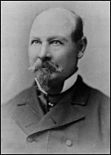The Utah War (1857–1858), also known as the Utah Expedition, Utah Campaign, Buchanan's Blunder, the Mormon War, or the Mormon Rebellion was an armed confrontation between Mormon settlers in the Utah Territory and the armed forces of the United States government. The confrontation lasted from May 1857 to July 1858. There were some casualties, mostly non-Mormon civilians. The war had no notable military battles.
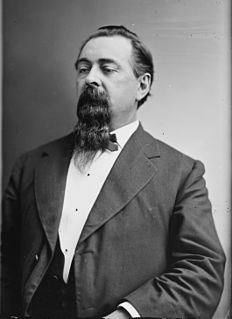
José Antonio Romualdo Pacheco, Jr. was a Californio politician and diplomat. He was elected and appointed to various California state and federal offices and posts throughout his more than thirty-year career, including serving in the California State Senate, as the 12th governor of California, and three terms in the United States House of Representatives. Pacheco remains the only Hispanic or Latino governor in the state's history as part of the U.S. He was also the state's first governor to be born in California and the only governor to be born in the state before statehood. Pacheco represented California in the United States House of Representatives as a Member of the Republican Party from March 4, 1877 to February 7, 1878, and from March 4, 1879 to March 3, 1883. He was the first Hispanic Representative from a U.S. state; several others had previously served as delegates for U.S. territories and as such did not have full voting privileges.
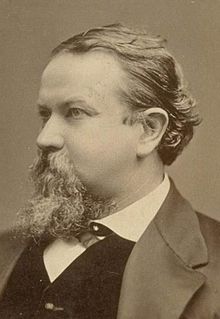
Milton Slocum Latham was an American politician, who served as the sixth governor of California and as a U.S. Representative and U.S. Senator. Latham holds the distinction of having the shortest governorship in California history, lasting for five days between January 9 and January 14, 1860. A Lecompton Democrat, Latham resigned from office after being elected by the legislature to fill the U.S. Senate seat left vacant by the death of David C. Broderick in a duel.

John B. Weller was the fifth governor of California from January 8, 1858 to January 9, 1860 and a congressman from Ohio, U.S. senator from California, and minister to Mexico.
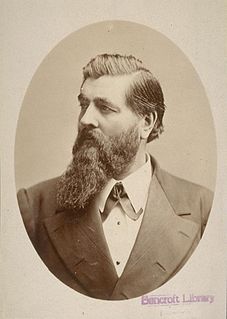
James Thompson Farley was an American politician.

Edwin Baruch Winans was a U.S. Representative from and the 22nd Governor of the US state of Michigan.
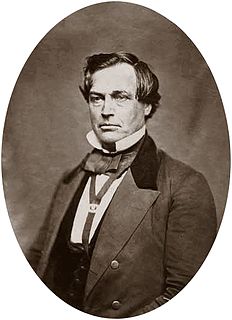
James William "Jim" Denver was an American politician, soldier and lawyer. He served in the California state government, as an officer in the United States Army in two wars, and as a Democratic member of the United States House of Representatives from California. He served as secretary and Governor of the Kansas Territory during the struggle over whether or not Kansas would be open to slavery. The city of Denver, Colorado, is named after him.
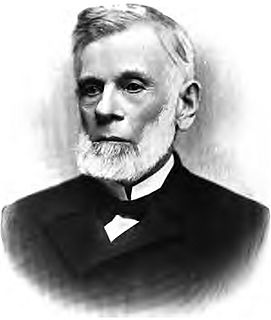
Moody Currier was a lawyer, banker, generous patron of the arts, and Republican politician from Manchester, New Hampshire.

Edward W. Stanly was a North Carolina politician and orator who represented the southeastern portion of the state in the United States House of Representatives for five terms. In 1857, Stanly ran for Governor of California, but lost to John B. Weller. Politicians of the mid-nineteenth century remarked that Stanly bore a strong physical resemblance to William H. Seward, though this resemblance lessened over time.

George de Rue Meiklejohn was a Nebraska Republican politician who served as the fifth Lieutenant Governor of Nebraska under Governor John Milton Thayer and a member of the United States House of Representatives for Nebraska. He was the United States Assistant Secretary of War from 1897 to 1901.
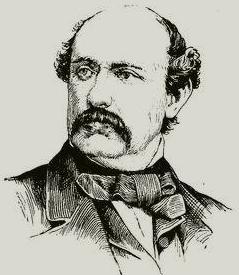
Rodman McCamley Price was an American Democratic Party politician, who represented New Jersey's 5th congressional district in the United States House of Representatives from 1851–1853, and served as the 17th Governor of New Jersey, from 1854 to 1857.

Peter Hardeman Burnett was an American politician and the first Governor of California as a state in the U.S., serving from December 20, 1849, to January 9, 1851, and the first to resign from office. Burnett was governor for almost one year before California's admission to the United States in 1850.

Lionel Allen Sheldon was a U.S. Representative from Louisiana. He was Governor of New Mexico Territory from 1881 to 1885.

Joseph Walkup, a member of the Democratic Party, was the fifth Lieutenant Governor of California from 1858 to 1860.

William Holden was the 11th Lieutenant Governor of California, 1867-1871.

William C. Grimes was an American politician and businessman who had a major influence on Oklahoma politics. He most notably served as Acting Governor of Oklahoma Territory from November 30, 1901, to December 9, 1901. For many years, he served as chair of the Territorial Republican Committee. He also served as territorial delegate to the Republican National Committee.

The 1859 California gubernatorial election was held on September 7, 1859 to elect the governor of California.

The 1857 Minnesota gubernatorial election was held on October 13, 1857 to elect the inaugural governor of Minnesota.



